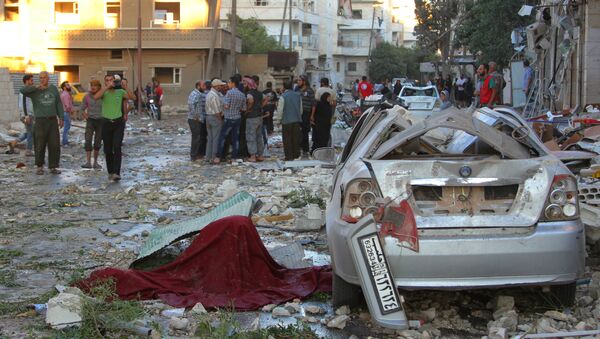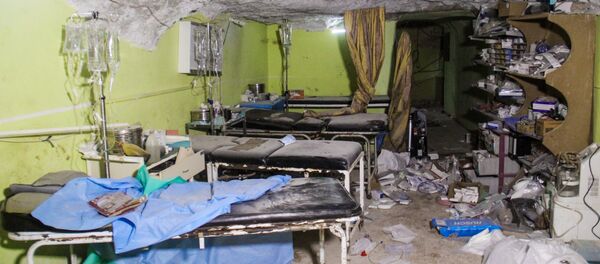MOSCOW (Sputnik) — On Tuesday, the Syrian National Coalition of Revolutionary and Opposition Forces and some other sources reported that some 80 people were killed and 200 injured in a chemical weapon attack in Idlib, blaming the Syrian army for the incident. The Syrian Armed Forces refuted the allegations.
"Every time there had been a crucial juncture in the development of the Syrian crisis, or an important international meeting regarding Syria, a 'chemical attack' incident would be staged, the Western powers and their stooges would rush immediately to hold the Syrian government responsible without any investigation or proof," Moustapha, a former ambassador to the United States, said.
Reports of a chemical attack in Idlib coincided with the Syria Donors Conference, which took place in Brussels on April 4-5, and caused a wave of international condemnation. It came also shortly after the fifth round of the Geneva negotiations on Syrian reconciliation wrapped up on March 31.
Moustapha stressed there arose a question of why a chemical attack happened when events on the ground were swaying in favor of Syria and there was progress in political solution of the country’s crisis.
He highlighted that the exploitation by Western countries of such incidents for political purposes only provoked terrorists to commit more crimes.
On Wednesday, the United Kingdom, France and the United States introduced a draft resolution to the UN Security Council claiming that the alleged attack was carried out by the Syrian army. Moscow categorically rejected the submitted draft resolution. Later that day, Russia submitted to the UN Security Council its variant of a draft resolution on conducting an investigation into the chemical attack in Syria.
Following a 2013 chemical weapon attack in Syria's East Ghouta, Syria joined the Convention on the Prohibition of Chemical Weapons. This was the result of an agreement between Russia and the United States on the destruction of chemical weapons in the Arab country under the control of the Organisation for the Prohibition of Chemical Weapons (OPCW), which also prevented the US military intervention in Syria. In January 2016, the OPCW announced that all chemical weapons in Syria had been destroyed.
However, in June 2016, the US State Department released a report saying Syria continued to use chemical substances against citizens and suggesting the country could also stockpile chemical weapons. UN High Representative for Disarmament Affairs Kim Won-soo said that the UN and OPCW experts still could not confirm the complete destruction of chemical weapon production facilities in Syria.



